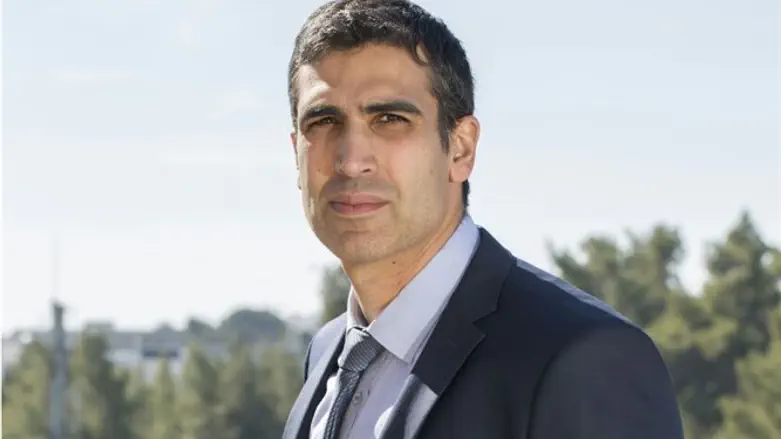
Lt. Col. Yoni Chetboun, a former MK (Jewish Home) and currently a member of the Netanya Council and a security advisor, published an article criticizing Israel's dependence on the Iron Dome already eight years ago. Arutz Sheva spoke with him about the Iron Dome in light of the current escalation in the south.
"The Iron Dome has become a sleeping pill for the public and military leadership," says Chetboun. "From the time the Iron Dome came into the picture, the residents of Israel and the leadership have gotten used to it intercepting missiles. We've moved to a defensive approach in response to missile attacks on a sovereign state."
In this context, Chetboun also mentions the billions invested in the construction of the fence, which has advanced technological features, along the Gaza border in response to terrorism. "They haven't overcome terrorism in any place in the world through fortification, concrete and fences," Chetboun states.
"Ironically, the Iron Dome was supposed to allow the defense establishment to conduct an offensive campaign inside the Gaza Strip in order to bring about the elimination of terror. Instead, we have drugged ourselves and become accustomed to the constants rounds of rockets. We're still paying the price for it today."
"We must return to the concept of operational control in the Gaza Strip. On the eve of Operation Defensive Shield, the discourse in the defense establishment was that it was impossible to enter the casbah in Nablus and Jenin. In 2000, dozens of soldiers and civilians were killed every week. In 2002, the brigade commanders initiated a move and presented the senior echelon with a proposal for a logical and necessary military operation. We launched Operation Defensive Shield and Israel is the only country that has proven that it's possible to strike the enemy's territory at home in an operational attack. Between 2002 and 2004 we were the only country that succeeded in defeating the terror of suicide bombers."
"The same feeling exists today regarding the Gaza Strip as well. The IDF knows how to enter the Gaza Strip and control it for a prolonged period of time. There would be a heavy price to pay but from a long-term perspective, a country needs to know how to bring in soldiers and protect its citizens. It can't be that we accustom ourselves to the firing of rockets."
And what about civilian strength? Maybe Israeli civilians can't withstand a prolonged operation and aren't interested in paying the heavy price involved?
"Operation Protective Edge, unlike the Second Lebanon War, proved that Israeli society, from the right and left, gave broad legitimacy to operate within the Gaza Strip. We were in the Gaza Strip for 50 days and the social discourse was 'Let the IDF win.' The fact that we didn't accomplish that is another story, but many were surprised by the ability of the Jewish people to sit in bomb shelters over time. I'm certain that when a military and political leadership emerges that will make it clear that we're embarking on a painful military operation to defeat terror, Israeli society will be able to adapt itself to it."
"Often the Arabs make us realize that there's no choice but to attack them aggressively, and that will eventually come," says Chetboun. "Beyond the logical component, this is a perception that will ultimately occur, because it's impossible to remain in this reality for long."
Chetboun clarifies the term "operational control in the Gaza Strip" for us. "Today there's no Jewish settlement in Jenin, Nablus and Ramallah, but the IDF enters freely and makes arrests with full freedom of action. The same freedom of action must be returned to the Gaza Strip. Ultimately, the professional and historical model taught us that they will fire missiles from any place where the IDF not present."
